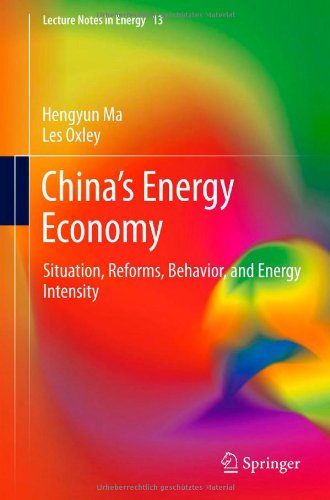

Most ebook files are in PDF format, so you can easily read them using various software such as Foxit Reader or directly on the Google Chrome browser.
Some ebook files are released by publishers in other formats such as .awz, .mobi, .epub, .fb2, etc. You may need to install specific software to read these formats on mobile/PC, such as Calibre.
Please read the tutorial at this link: https://ebookbell.com/faq
We offer FREE conversion to the popular formats you request; however, this may take some time. Therefore, right after payment, please email us, and we will try to provide the service as quickly as possible.
For some exceptional file formats or broken links (if any), please refrain from opening any disputes. Instead, email us first, and we will try to assist within a maximum of 6 hours.
EbookBell Team

5.0
40 reviewsIn the new millennium, understanding China’s energy economy is crucial for politicians, businesspeople and energy economists, as China’s energy policy choices will mean both challenges and opportunities for the world in terms of an increasing share of primary energy consumption and investment. This book initially reviews the literature on China’s energy economy and in so doing reveals that many important areas have been overlooked or are outdated in their coverage. Given the size of China and its global importance, the book then review s China’s current energy situation and fills the gaps in the literature for those who are interested in and concerned about China’s economic development and energy reform in the new millennium.
The book is different from previous studies in several important ways: Firstly, it presents recent, pioneering research rather than a simple textbook, several sections of which have been published in high-quality energy journals. Secondly, the book first subdivides China's energy intensity change into aspects of budget constraint, technological change, factor substitution, energy demand and economic growth using a newly developed econometric approach. Thirdly, it provides many new and different econometric findings and derives many new policy implications for China's energy economy. And lastly, it brings to light a wealth of new knowledge for those who are interested in China's energy economy, the world energy market and global environmental and climate change issues.